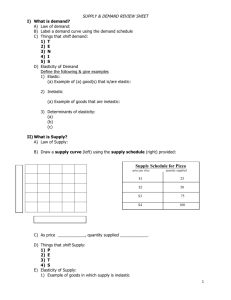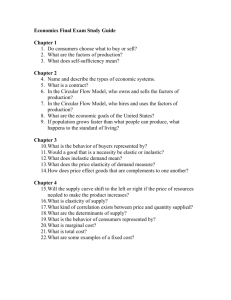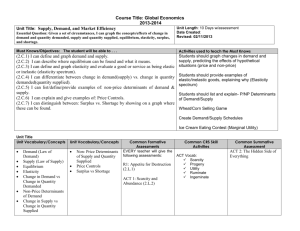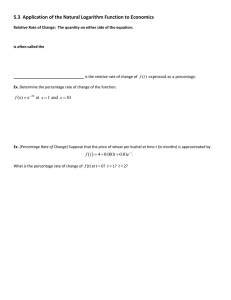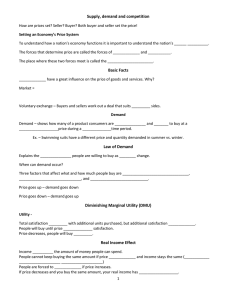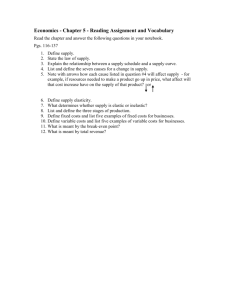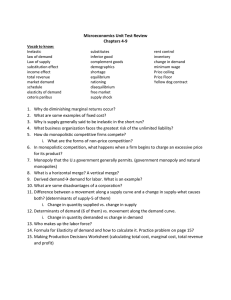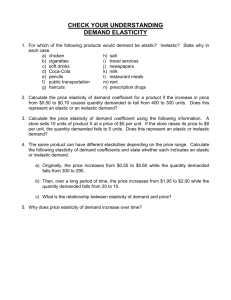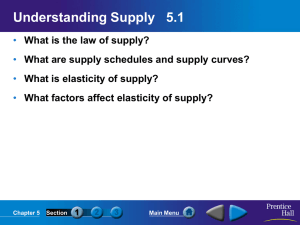Economics
advertisement
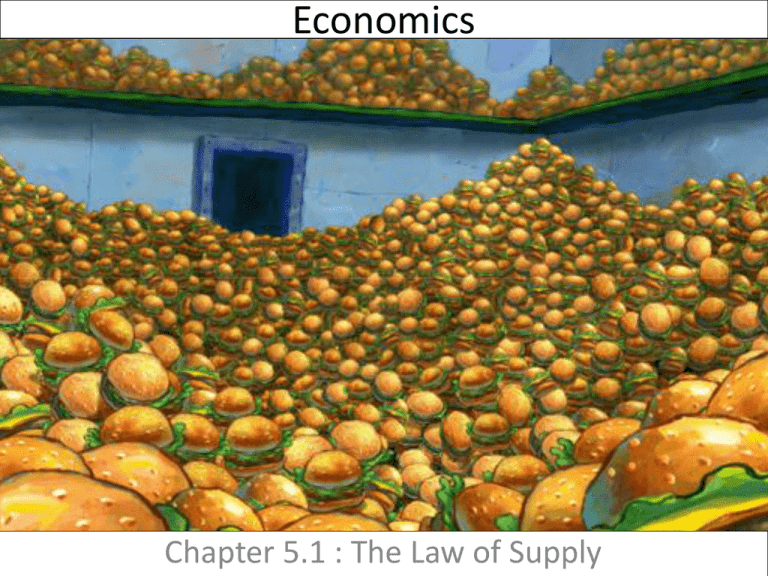
Economics Chapter 5.1 : The Law of Supply Economics is the study of choices. Just as Tom Hanks had to make economic choices (build a house or a boat), and consumers make choices (which products they are willing and able to demand), so to business must decide how much of a product to supply Agenda for Today • 5.1 Law of Supply Slide Show • Homework –Complete Worksheet Chapter 5, Lesson 1 Let’s Review What is Supply? • Supply – Ability and willingness of a producer to provide things for sale • Supply is not the physical amount ready for sale • It is the point at which a seller is willing and able to supply • Law of Supply – belief that as the price of a good rises, the quantity supplied will rise Would Mr. Krabbs “supply” Krabby Patties with sea cheese if it cost him $1.75 to produce it? Explain. • The more $ Mr. Krabb can get, the more he is willing What if the price rose to $2.00 for a Krabby Patty to “supply” with sea cheese? What is a Supply Schedule? • Supply Schedule • Way to show the law of supply using a chart • Use the Supply Schedule to answer the following questions – Suppose Mr. Krabb decides to sell ice cream cones. Why is he unwilling to supply cones at $.50? What is the Supply Curve? • Supply Curve – Illustrates the behavior of the seller – Shows quantity the seller is willing and able to provide at each possible price How many pizza’s would Mr. Krabb be willing to supply at $1? How many at $4? How much will a change in price affect supply? • Elasticity of Supply – How changes in price affect the quantity of supply • Elastic Supply – When a change in price has a big effect on the quantity supplied • American Flags after 9/11 – Patriotic Americans willing to pay more for flag – As price rose, supply rose What is inelastic supply? • Inelastic supply – When a change in price has very little effect on the quantity supplied • There is a limited amount of land available • IPhone –No matter the price, it takes time and skill to make a IPhone What is zero elasticity of supply? • Zero Elasticity of Supply • A change in price has no increase in supply • Usually found in rare, “one of a kind” products • Example – Mona Lisa by Leonardo da Vinci – No matter how much someone is willing to pay, there will only ever be 1 Mona Lisa
